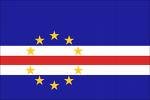Kasca d’Merkon
So I heard an interesting turn of phrase the other day…kasca d’Merkon. I overheard the phrase in a hiace full of people all having different conversations, so I wasn’t privy to the context, but naturally assumed that they were talking about me. Now, the word kasca, depending on the context means, skin, shell or covering. Merkon, obviously, means American. So I guessed they were talking about the color of my skin, which happens all the time.
Unlike in America, where discussing someone’s skin color isn’t polite conversation, and where people normally being to cringe and quail on the rare occasion that we discuss someone’s skin color in public, over here, they do it all the time. Cape Verdians come in every shade from whiter than I, to black as ink, and they LOVE to talk about it. When describing another person, Cape Verdians will inevitably begin by detailing their color. Mel, mocha, brankinha, oskuro, kor moda bo, prêt prêt. (Honey, coffee, light, dark, same color as you, really black.) Generally, at least on this island, it is preferable to be lighter colored. For Cape Verdian men, a drop-dead-gorgeous, perfectly formed girl with dark, dark skin is actually less desirable than an average looking, plumpy, light skinned girl. Ask about a girl and you might for instance hear “Well, she’s not very light skinned, but she’s still pretty. I don’t really consider it racism, but there is an advantage to being lighter. If you happen to be one of he lighter skinned boys or girls, AND have the luxury of honey and almond colored eyes, the success of your future love-life is secured beyond all doubt.
Anyway, all that’s beside the point. Like I said, I thought this girl was talking about the color of my skin, so I asked her what they were saying about me. She laughed and said:
No n’tava ta fala na bo. So un koisa geral, merka ten kaska duro.
(We’re not talking about you. Just generally, America has thick skin.)
Ah, now I understood. I’d actually heard that before...this perception amongst Cape Verdians that Americans are sort of a tough, not-easily-offended bunch of folks that pretty much do and say as we please with little regard for the opinions of others. We’re perceived generally as confident, positive thinking, can-do people. But just to be sure, I asked her to explain what she meant.
I said:
Kaska d’Merkon sinifika assim a hora k’bo ten un fijou k n’kre kusinha dret. El t’fka na agua kent un bokuat, ma d’pois t’fka duro d’pedra. K’la e un fijou k’ten kaska Merkon. D’vera?
(American skin means like when you have a bean that doesn’t want to cook right. It’ll boil for a long time, but later it’s still hard as a rock. That is a bean that’s got an American skin. Right?)
And she said:
Mais o menos. Kaska d’Merkon sinifika kaska forte, ka ta straga. Nos t’dze assim modke tud kaska, pan d’kama, k’ven d’Merka, aex nunka t’straga. Aez e seb. N’e moda kex la na Chines. Poriz, kualkuer koisa k’ka ta straga, nos t’dze kuex ten kaska d’Merka.
(More or less. American skin means strong skin, skin that won’t break. We say that because every bed sheet that comes from America, they last forever. They’re awesome. Not like the sheets that come from China. That’s why we say anything that lasts forever has American skin.)
So anyway, I suppose you might find that considerably less interesting than I did. I’m always fascinated by foreigners’ perceptions of Americans, plus it’s so FUN to learn a new language, especially when you start picking up the little turns of phrase or subtleties, like I’m starting to be able to do.
In the same vein, tomorrow I’ll tell you about the little phrase that I know that has forever endeared me to my Cape Verdian friends and neighbors, and I’ll have word or two about that greatest of all social customs, the American Handshake.
Subscribe to:
Post Comments (Atom)

No comments:
Post a Comment